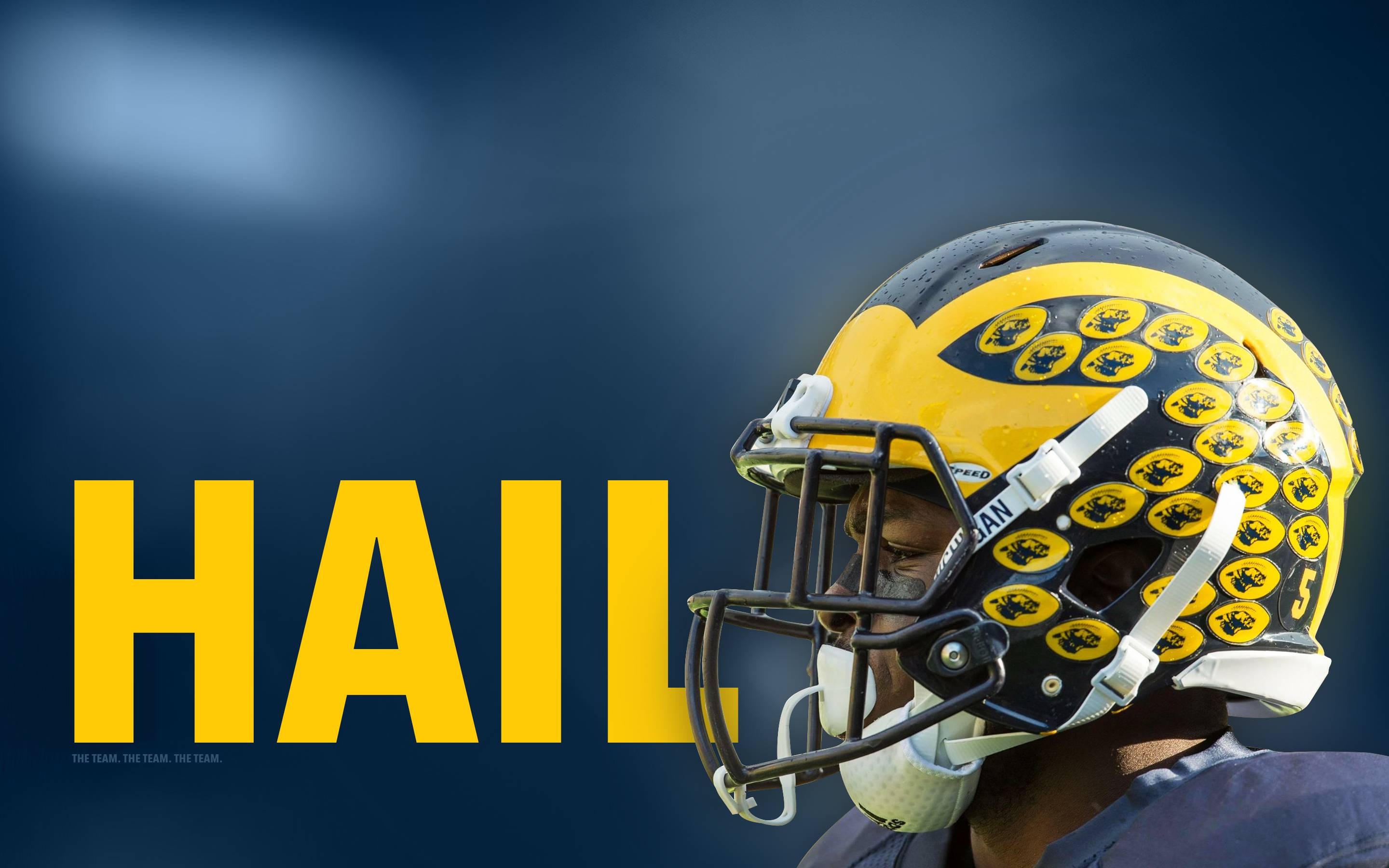Michigan football is more than just a game; it is a cherished tradition that has woven itself into the fabric of American sports culture. With a history that dates back over a century, the University of Michigan's football program has evolved into one of the most storied and successful teams in college football history. From thrilling victories to heart-wrenching defeats, the journey of Michigan football is one filled with passion, pride, and an unwavering commitment to excellence. The team's iconic winged helmets and the legendary Big House, Michigan Stadium, serve as symbols of a rich heritage that attracts fans from all corners of the nation. Each fall, the anticipation of game day ignites a fervor that unites students, alumni, and die-hard supporters alike, creating an electric atmosphere that is hard to replicate.
As we delve into the world of Michigan football, it is essential to recognize the contributions of the players, coaches, and the community that have shaped this program. From legendary figures like Bo Schembechler to the modern-day coaching icons, Michigan football has witnessed the rise of numerous talented athletes who have left an indelible mark on the sport. With a commitment to excellence, the program continues to build upon its legacy, inspiring new generations of players and fans.
In this article, we will explore the history, the key figures, and the future of Michigan football, answering some of the most pressing questions surrounding this iconic program. Whether you are a lifelong fan or someone new to the world of college football, there is always something to learn and appreciate about Michigan football.
What is the History of Michigan Football?
The University of Michigan football program began in 1879, making it one of the oldest in the nation. Over the years, the Wolverines have built a remarkable legacy, with numerous conference championships and national titles. The team's first national championship came in 1901, which set the stage for a century of excellence.
Who are the Key Figures in Michigan Football's History?
Several legendary coaches and players have played a pivotal role in shaping Michigan football. Notable figures include:
- Bo Schembechler: A coaching legend who led the Wolverines from 1969 to 1989, winning numerous Big Ten titles.
- Tom Harmon: A Heisman Trophy winner in 1940, he remains one of the most celebrated players in Michigan history.
- Charles Woodson: A dynamic player who won the Heisman Trophy in 1997, he is regarded as one of the best defensive backs in college football history.
What Makes Michigan Football Unique?
Michigan football stands out due to its rich traditions, passionate fan base, and commitment to excellence. The team’s iconic winged helmets and the historic Michigan Stadium, known as "The Big House," are associated with thrilling college football experiences. Game days are a spectacle, drawing in over 100,000 fans, making it one of the largest stadiums in the world.
What are the Major Rivalries in Michigan Football?
The Michigan Wolverines have fierce rivalries that add excitement to their season. The most notable is the rivalry with Ohio State, often referred to as "The Game." This matchup has significant implications for conference standings and is a highlight of the college football calendar. Other rivalries include:
- Michigan State: Known as the Paul Bunyan Trophy game, this rivalry is deeply rooted in state pride.
- Notre Dame: A historic rivalry that spans over a century, characterized by intense competition and mutual respect.
What is the Current State of Michigan Football?
As of recent seasons, Michigan football has seen a resurgence under head coach Jim Harbaugh. The team has consistently competed for Big Ten titles and has made appearances in major bowl games. With a strong recruiting class and a commitment to player development, Michigan aims to reclaim its status as a national powerhouse.
What is the Future of Michigan Football?
Looking ahead, Michigan football is focused on building a sustainable program that continues to attract top talent. With a strong emphasis on player performance, academic success, and community involvement, the Wolverines are poised for continued success. The support from alumni and fans will be crucial in this endeavor, ensuring that Michigan football remains a force in college athletics.
What Are the Values Behind Michigan Football?
Michigan football embodies values such as teamwork, integrity, and resilience. These principles are instilled in players from their first day on campus and are integral to the program's culture. The coaching staff emphasizes not just athletic prowess but also personal development, preparing players for life beyond football.
How Can Fans Get Involved with Michigan Football?
Fans can engage with Michigan football in various ways, including:
- Attending Games: Experience the excitement of live football at Michigan Stadium.
- Joining Alumni Associations: Connect with fellow fans and support the program through various events.
- Merchandise: Show your pride by wearing Michigan apparel and supporting local vendors.
What Are the Academic Achievements Associated with Michigan Football?
The University of Michigan prides itself on the academic achievements of its student-athletes. Many players have excelled in their studies, contributing to a graduation rate that is among the highest in college football. The program emphasizes the importance of education, ensuring that players are prepared for success both on and off the field.
Conclusion: Why Michigan Football Matters?
Michigan football is more than just a sport; it is a community, a tradition, and a symbol of excellence. With a rich history, passionate fan base, and commitment to integrity, the Wolverines continue to inspire pride and loyalty among their supporters. As we look to the future, Michigan football remains a cornerstone of college athletics, embodying the spirit of competition and the pursuit of greatness.
Unveiling The Life And Journey Of Corey Carmen
Nip Tuck: The Art Of Body Transformation
Exploring The Noble Heritage Of The Velaryon House


